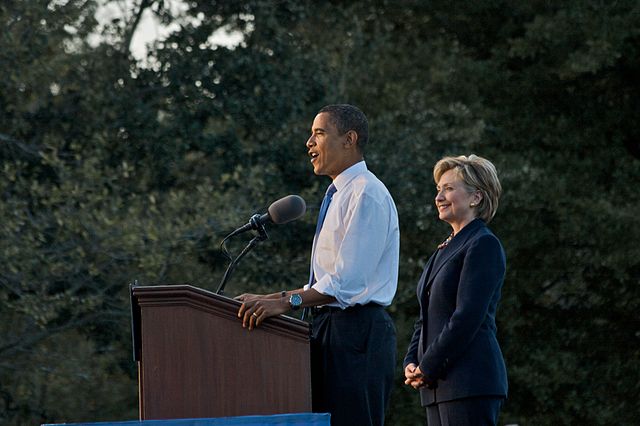
Dear WordCount:
What is the standard practice for quoting someone like a public figure making a statement or speech? — Anonymous
Dear A.:
Great question, and perfect timing, since for the past two weeks, we’ve been treated to a litany of speeches at the Republican and Democratic national party conventions in advance of this November’s presidential election.
Whether you work as a freelance journalist, feature writer or blogger, there are some basic ground rules when it comes to covering a speech. They are:
1. Take notes. If you can’t write fast enough, use a recording device (digital recorder, phone, whatever you’re most comfortable with). If you’re writing a short daily, you probably don’t need to take down the entire speech word for word – just all the quotes that you think could possibly make it in the story.
2. Use a transcription service. If you’re not on deadline, send taped speeches to a service that can transcribe them for you. I tend not to do this because of the nature of the writing work I do, but I know many, many freelance writers who do.
3. If you’re taping a speech takes notes anyway. Records, digital or otherwise, don’t always work. It’s not fun to walk away from a speech with nothing except what you can remember and then quickly jot down in your notebook, laptop or phone before the words are lost forever- been there, done that, and it’s not pretty.
4. Ask for a transcript. If you’re covering a speech by a major politician, CEO of a publicly traded company or some other public figure, chances are they have a speech writing team or communications department that can provide you with a copy of the speech if you ask. These days, many politicians or campaign staffs post speeches on their websites. Here’s a transcript of GOP vice presidential nominee Paul Ryan’s speech at the Republican National Convention. But don’t wait until after the fact to ask about this – contact the speech giver or their staff ahead of time, so if they aren’t providing copies you’ll know to be prepared to take your own notes.
5. Ask for a one-on-one. If you’re reporting on a speech or event that other news outlets will be covering, get some alone time with the speech giver so you can get one or two quotes that nobody else will have. If you’re smart, you’ll use those quotes to differentiate your story from what everyone else is writing (that means using them up high in the story, maybe even in the lead).
6. Head to the podium. If you can’t get private time with Mr. or Ms. Speech Maker beforehand, be the first one out of your seat once they’re finished talking and make a beeline for wherever they’re standing – all the better to nab them for a quick question or two (see #5). The digital equivalent of this if you’re listening to a speech or talk on a conference call is putting in your request to ask a question as soon as possible. Yes, everyone else will hear your question, and the subject’s answer, but it’s better than not asking. And if you really don’t want other reporters to hear, ask the speaker’s PR team beforehand if you can get 5 minutes on the phone with them after the fact for a few private questions.
7. Don’t take no for an answer. If the speaker professes to be in a hurry to catch his or her plane/taxi/lunch date/next appointment/son’t baseball game, offer to walk with them, or even ride in the taxi with them – whatever it takes to get answers to the questions you need to ask. What’s worse, shelling out for taxi fare back to where you were or having to tell your editor you didn’t get a fresh quote?
8. Keep quotes in context. Quotes should reflect the intended meaning of the speaker. If the language they used was awkward, if they used a run-on sentence or if they just plain rambled, paraphrase to get to the heart of what they were saying. Then you can cap it off with a shorter, punchier quote.
9. If you’re not sure of what someone said, ask for clarification. You’re back at your desk listening to the speech on your phone or reading through the transcript and something’s garbled. Don’t wing it. Contact the speech giver’s office and ask for a clarification. Better to spend a few extra minutes getting things right than not checking, getting it wrong and dealing with the aftermath.
10. Understand what makes a good quote. To learn more, read this – Writing basics: The quote.
What advice do you have for quoting someone making a speech? Share it by leaving a comment.
Dear WordCount is a weekly advice column answering your questions about writing, blogging and running a freelance business. Send questions to wordcountfreelance@gmail.com.